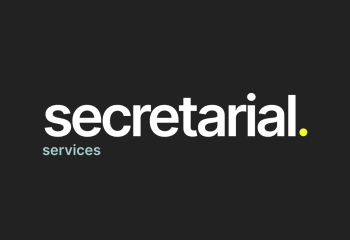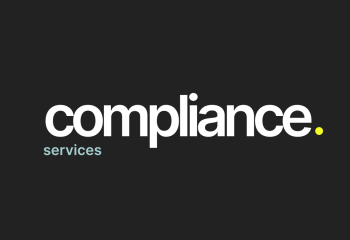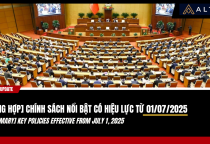DRAFT DECREE REPLACING DECREE NO. 09/2018/NĐ-CP REGARDING TRADING OF GOODS AND DIRECTLY RELATED ACTIVITIES OF FOREIGN-INVESTED ECONOMIC ORGANIZATIONS
Views: 2625

.png)
1. LEGAL CONTEXT AND RATIONALE FOR AMENDMENT
Decree No. 09/2018/NĐ-CP was issued to implement the provisions of the Law on Commerce and the Law on Foreign Trade Management regarding the trading of goods and directly related activities of foreign-invested economic organizations (FDIs). However, after more than seven years of implementation, this decree has revealed multiple shortcomings. A major reason lies in the changes to the fundamental legal framework, particularly the adoption of the Law on Investment 2020 replacing the Law on Investment 2014. The investment conditions, conditional business lines, as well as licensing procedures under the 2020 Law on Investment are no longer consistent with the provisions of Decree 09.
In addition, the issuance of Decree No. 146/2025/NĐ-CP on decentralization and delegation of authority, together with the Politburo’s Conclusion No. 155-KL/TW and the Government’s Plan No. 447/KH-CP, has required a restructuring of management authority, transferring licensing powers from the Ministry of Industry and Trade (MOIT) to provincial People’s Committees. Moreover, Vietnam’s participation in new-generation free trade agreements (EVFTA, CPTPP, UKVFTA) has created pressure to internalize international commitments, particularly in the fields of distribution, retail, and the economic needs test (ENT).
For these reasons, MOIT has developed a Draft Decree replacing Decree 09/2018/NĐ-CP, with significant innovations in procedures, conditions, and management mechanisms.
2. DECENTRALIZATION AND DELEGATION OF LICENSING AND MANAGEMENT
One notable change is the removal of the requirement for prior approval from MOIT and other ministries before granting a Business License or a Retail Outlet License. Licensing authority is transferred to provincial People’s Committees, in line with the orientation of decentralizing state management. Accordingly, local authorities are directly responsible for licensing, inspection, and supervision of FDI enterprises’ trading activities within their localities.
This change goes beyond “delegation” by also extending local authority over specific sectors such as the import and distribution of lubricants, rice, sugar, printed products, recordings, and publications.
3. PROVISIONS ON RIGHTS AND OBLIGATIONS OF INVESTORS
The Draft Decree inherits, supplements, and adjusts the provisions of Decree 09/2018/NĐ-CP to align with the Law on Investment 2020 and international commitments. The concepts of “distribution rights,” “import-export rights,” and “activities directly related to the trading of goods” are further clarified.
It specifies the rights and obligations of foreign investors and FDI enterprises for each type of activity, while adding obligations to comply with Vietnamese laws on fire prevention and fighting, food safety, environmental protection, and consumer protection.
The Draft also provides for periodic and ad-hoc inspections, together with measures for handling violations and revoking Business Licenses where necessary.
4. ECONOMIC NEEDS TEST (ENT) AND INTERNALIZATION OF INTERNATIONAL COMMITMENTS
The Draft stipulates ENT exemption for investors from countries/territories that have commitments with Vietnam in FTAs (e.g., EU, UK, Japan, Singapore). For other cases, ENT remains applicable but with clarified criteria, including: population density, number of retail outlets, market demand, impacts on socio-economic stability, local livelihoods, and national security and defense.
The ENT process involves an ENT Council comprising representatives of the provincial People’s Committee, Department of Industry and Trade, and relevant agencies, thereby enhancing transparency and objectivity in licensing.
5. INVESTMENT CONDITIONS AND PROCEDURES FOR BUSINESS LICENSES
The Draft adds requirements to demonstrate financial capacity, a feasible business plan, and compliance with tax obligations of foreign traders. Licensing dossiers must include full legal information, detailed business plans, and documents relating to the proposed retail outlet location.
The dossier handling process is specifically regulated with deadlines: receipt (03 days), appraisal and consultation (10 days), decision-making (03 days). In case of refusal, the licensing authority must issue a written explanation.
Procedures for amendments and re-issuance of Business Licenses are also clarified:
-
Amendment: when changing location, business lines, form of activity, or investment conditions (processed within 10 days).
-
Re-issuance: when the license is lost, damaged, or subject to certain changes not requiring amendment (processed within 05 days).
6. PROCEDURES FOR RETAIL OUTLET LICENSES AND AMENDMENTS
The Draft specifies the dossier for applying to establish a retail outlet, including: application form, explanatory statement on conditions, documents proving lawful use of premises, business plan, and other relevant papers.
Handling process: dossier receipt (03 days), appraisal (10 days), ENT consultation (07 days if applicable), consolidation and licensing (03 days). Extensions of appraisal time are permitted but must be notified in writing with reasons.
Retail outlet licenses are valid in line with the business plan, not exceeding the lease term of the premises, and may be extended as provided by law. In cases of serious violations, licenses may be revoked.
Evaluation criteria include: consistency with distribution network planning, competition conditions, local consumer demand, diplomatic relations, national security, and other social factors.
7. PRACTICAL IMPLICATIONS AND EXPECTED IMPACTS
The Draft Decree replacing Decree 09/2018/NĐ-CP represents an effort to balance:
-
Administrative reform and increased transparency;
-
Compliance with international commitments and encouragement of investors from FTA partners;
-
Reasonable protection of the domestic market through ENT and quantitative conditions;
-
Enhanced accountability and management capacity of local authorities.
However, delegating powers to local authorities also requires standardization of enforcement capacity to avoid inconsistent application and delays.
8. CONCLUSION
The Draft Decree not only addresses the shortcomings of Decree 09/2018/NĐ-CP but also reflects the adaptation of Vietnamese law to a new legal framework and international integration requirements. The more detailed provisions on dossiers, procedures, ENT, and business conditions promise to create a transparent, competitive, and internationally consistent environment while safeguarding national interests, investors, and consumers.
HOW ALTAS CAN ASSIST YOU:
ALTAS LAW is uniquely positioned to assist your business in navigating these complex administrative reforms. We offer a comprehensive suite of legal and business services designed to provide seamless support during this transition period:
• Accounting and Tax Services: We also offer accounting and tax services to help your business manage the financial implications, including tax planning, tax settlement, tax auditing and tax refund.
• Licensing & Regulatory Compliance: We will meticulously review your existing licenses and permits, advise on necessary amendments or renewals, and guide you through the process of obtaining any new approvals. Our team will also ensure your compliance with all relevant regulatory changes.
Please feel free to reach us via email contact@altas.vn to discuss your specific concerns and explore how we can navigate these reforms successfully.
--
Written by: Mr. Luong Van Chuong (Chris) – Partner Lawyer at ALTAS Law
Date: 09/09/2025















.png)















